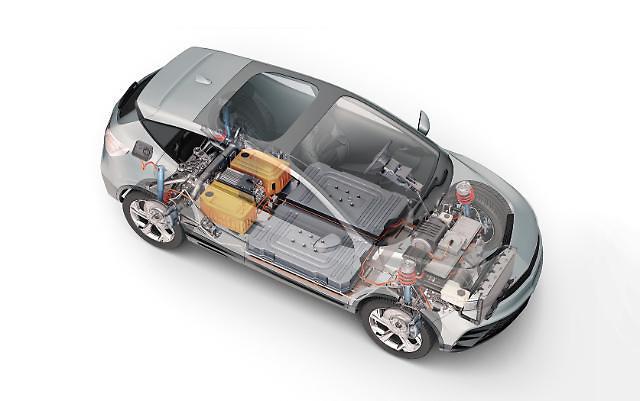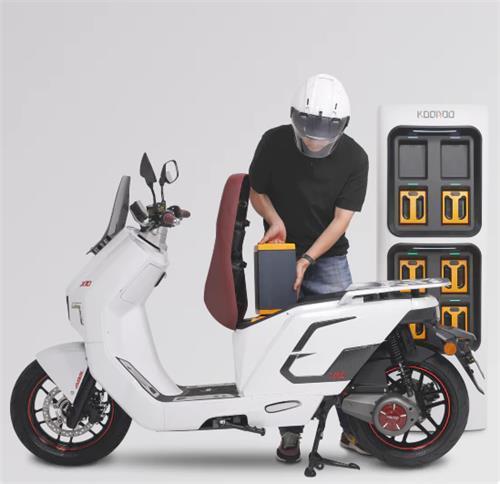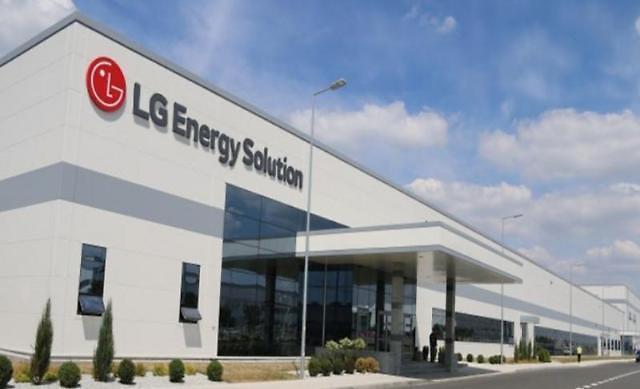
[Gettyimages Bank]
LGES and GM's joint venture called Ultium Cells is currently building two battery plants in the United States. Ultium Cells has unique technology to vertically or horizontally stack batteries to fit the shape of an electric vehicle. By 2025, Ultium Cells will secure an annual production capacity of more than 120 gigawatts-hours.
The South Korean battery maker is currently beefing up its EV battery manufacturing capabilities to meet growing market demands. LGES partnered with Stellantis N.V., an automotive manufacturing company headquartered in Amsterdam in October 2021, to form a joint venture to produce a battery plant with an annual capacity of 40 gigawatt-hours in North America. The construction is scheduled to be completed in the first quarter of 2024.
LGES said in a statement on January 26 that the company will invest an additional $2.6 billion into Ultium Cells to build the third battery plant in Lansing, Michigan. The construction of about 2.8 million-square-foot facility is scheduled for completion in late 2024. According to Ultium Cells, the annual production capacity of the facility will be about 50 gigawatt-hours which can cover about 700,000 high-performance EVs with a travel distance of more than 500 kilometers (311 miles) per charge.
To secure its foothold in the North American market, LGES said that the company will build its own factory with an annual capacity of more than 40 gigawatt-hours. The company predicts its total production capacity in North America including its joint ventures will reach 200 gigawatt-hours in the future.
A smart manufacturing system that allows factories to autonomously manage production processes using artificial intelligence (AI) and internet of things (IoT) technologies will also be actualized at Ultium's factory. By analyzing data in real-time, smart factories can detect defective products and calculate the factory's future production capacity.
"With a shared vision, GM and LGES pioneered the electric vehicle (EV) sector by seizing new opportunities in the market well before anyone else did," Kwon Young-Soo, CEO of LGES said, adding that Ultium Cells' third battery plant will later become a gateway that charges millions of EVs. GM also said the company will invest more than $7 billion in four manufacturing sites in Michigan including the third Ultium Cells battery plant.
LGES attracted some 114.1 trillion won ($95.8 billion) in funds by placing orders for initial public offering (IPO). The number of retail investors participating in the public subscription reached 4.4 million. Seven brokerage firms including KB Securities applied for public offering shares for the subscription. LGES was listed on the stock exchange on January 27.
LGES is considering additional facility investments in North America. The company will invest more than 10 trillion won in North America raised through listing on the securities market. The company allocated some 2.7 trillion won out of 10 trillion won in total procurement funds to secure new production sites in North America and to invest in building new joint ventures other than Ultium Cells. LGES will also invest 1.8 trillion won to secure a new production base in Europe and build additional factories in Wrocław, Poland.
According to an LGES official, who spoke on condition of anonymity, China-based battery manufacturer Contemporary Amperex Technology (CATL) currently has a larger market share than LGES but the South Korean battery maker will be able to overtake CATL in the future by targeting the global market. Data released by market research firm SNE Research showed that CATL ranked first with a market share of 31.8 percent in the global EV battery market in 2021 while LGES ranked second with 20.5 percent.




